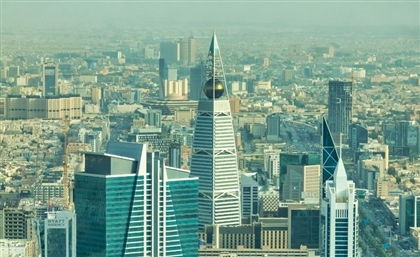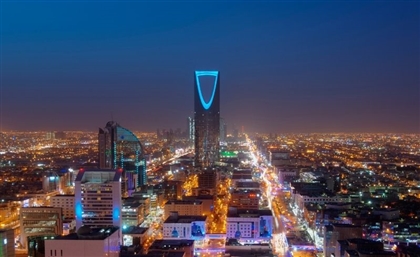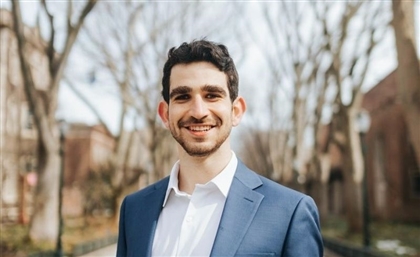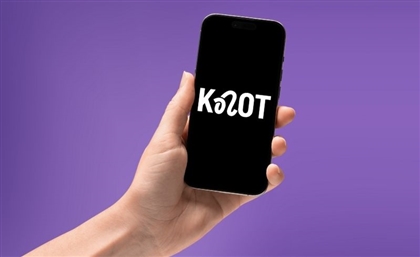Red Sea: The Startup Reinventing Agriculture for a Greener Future
This agritech startup developed a platform that uses up to 90% less fresh water and energy than traditional farming methods.
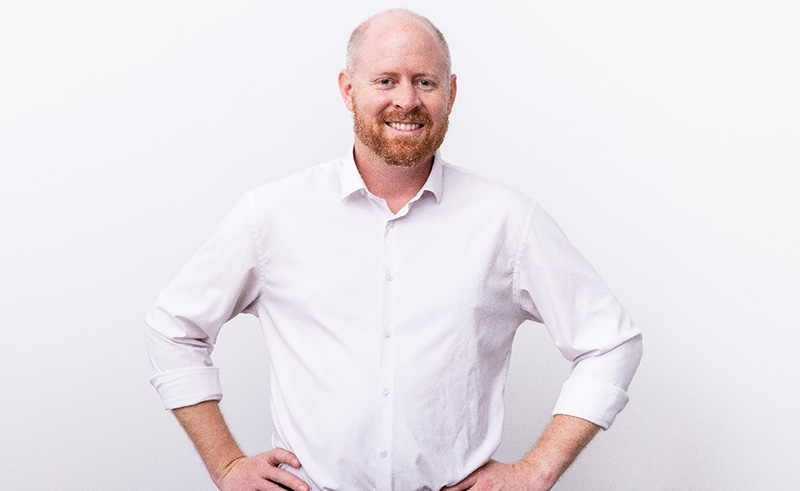
It is no secret that the word has a food security problem. With the global population growing rapidly, it is becoming increasingly critical to feed the world sustainably, especially in hot and water-scarce environments like the Middle East. In the GCC, for example, freshwater resources will be depleted within the next 50 years, according to the Brookings Institution. And climate change is only expected to make things worse.
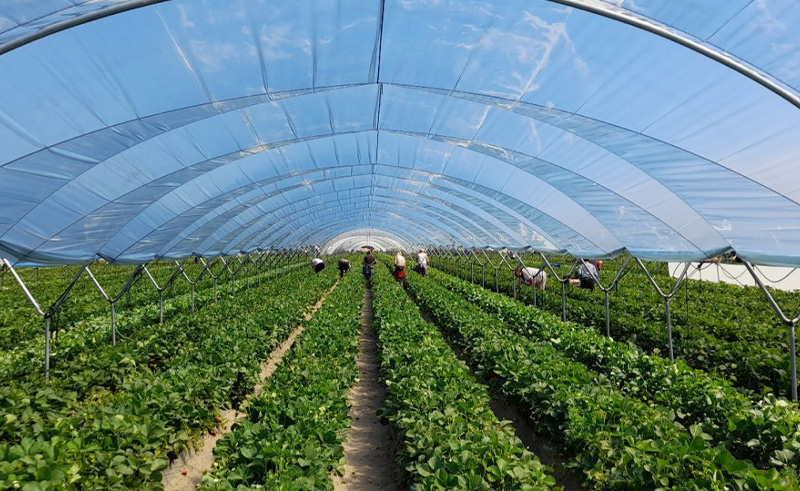 That’s why agritech startup Red Sea is developing technologies to support agriculture in hot and harsh environments. Founded in Saudi Arabia by Mark Tester, Ryan Lefers, and later joined by Derya Baran in 2018, the startup developed an agriculture platform that uses up to 90% less fresh water and energy than traditional farming methods.
That’s why agritech startup Red Sea is developing technologies to support agriculture in hot and harsh environments. Founded in Saudi Arabia by Mark Tester, Ryan Lefers, and later joined by Derya Baran in 2018, the startup developed an agriculture platform that uses up to 90% less fresh water and energy than traditional farming methods.
Researcher turned entrepreneur, Ryan Lefers moved to Saudi Arabia in 2013 from the US to pursue his PHD at King Abdullah University of Science and Technology (KAUST) before co-founding Red Sea. Growing up on a farm in the Midwest, he wanted to apply his research to support farmers to feed people sustainably in areas of high heat and finite water sources.
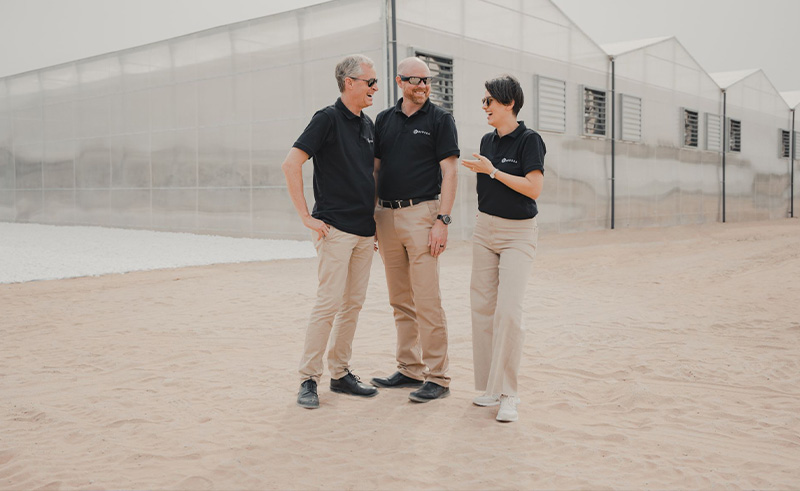 “We decided to launch this startup to really see if we could move some of the work that we were doing in research out into the real world to make a real impact,” Ryan Lefers, Co-founder and CEO of Red Sea, tells StartupScene. “It was based on the desire to try to benefit the planet and the people on it.”
“We decided to launch this startup to really see if we could move some of the work that we were doing in research out into the real world to make a real impact,” Ryan Lefers, Co-founder and CEO of Red Sea, tells StartupScene. “It was based on the desire to try to benefit the planet and the people on it.”
Today, the US-based startup provides a myriad of solutions to help farmers across the globe grow food efficiently and sustainably. With presence already in Saudi Arabia, the startup aims to expand the adoption of its technologies in key countries in the region including Egypt and Morocco, in addition to other markets globally like Mexico.
REINVENTING FARMING
 Unlike traditional greenhouses which are designed to keep plants warm in cool climates, Red Sea’s technologies help keep crops cool in hot climates. It does this by incorporating nanomaterials called ‘iyris SecondSky’ in greenhouse roofs to let in light, but block heat at the same time.
Unlike traditional greenhouses which are designed to keep plants warm in cool climates, Red Sea’s technologies help keep crops cool in hot climates. It does this by incorporating nanomaterials called ‘iyris SecondSky’ in greenhouse roofs to let in light, but block heat at the same time.
“It prevents unwanted energy from coming into the system, and it lets the energy that we do use, the light, to photosynthesize,” explains Lefers. “By doing that, we save water. So, there's less irrigation demand and we increase yield and quality.”
He adds that by using this technology in greenhouses, farmers will be able to increase crops produced per liter of water. “It goes up significantly as a result of this technology as opposed to a normal greenhouse or net house cover.”
Alternatively, the startup also works on a crop’s genetics to make them more resilient. So far, it is able to do that only on tomatoes, but it is looking to expand its technology to other crops. “In Egypt, we had a field last year that went from freezing to 40 degrees in two days,” says Lefers. “It’s a very difficult environment for any tomato crop, but ours with resilient rootstocks were able to rebound much quicker from that extreme climate challenge. And it produced a lot more.”
ADOPTING TECHNOLOGIES
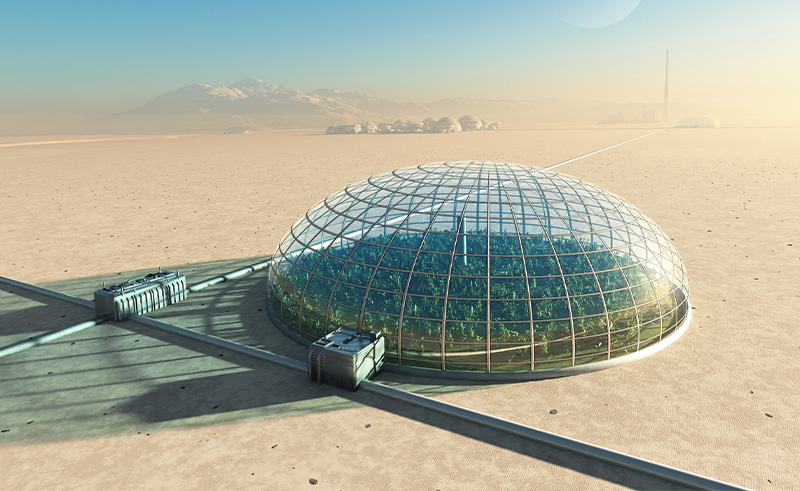 But like any technology, adoption is key for its success. Most farmers in the region often rely on traditional agricultural methods and are reluctant to adopt new technologies due to a lack of technical skills and knowledge. But shifting pressures are leading farmers to be more open to adopting agritech solutions to help optimize their returns, improving their overall bottom line in the process.
But like any technology, adoption is key for its success. Most farmers in the region often rely on traditional agricultural methods and are reluctant to adopt new technologies due to a lack of technical skills and knowledge. But shifting pressures are leading farmers to be more open to adopting agritech solutions to help optimize their returns, improving their overall bottom line in the process.
“If you talk about the farmer adoption versus technology in some other industries, certainly we see that agriculture is more conservative about technology adoption,” says Lefers. “That makes sense to me, having grown up on a farm, because this is your whole income for the year. You need some confidence that it's going to work. Having said that, what we see across the board is farms will adopt a small section on their farm to try it.”
Agriculture in the Middle East represents 13% of the region’s GDP, according to the Middle East Institute. It is estimated that as many as 84 million people, or 28% of the region’s population are entirely dependent on agriculture, making it a vital sector in many economies in the MENA region.
Perhaps this reliance on agriculture is encouraging farmers to be open to adopting new solutions. “Farmers are more conservative about adoption but at the end of the day, all farmers want to get a crop,” says Lefers. “They want to get the best yield possible and they want to return. So, if something's working, they will adopt it over time.”
According to data provided by Red Sea, the deployment of iyris SecondSky has increased by 50% in H2 2023 compared to H1 2023.
OVERCOMING CHALLENGES
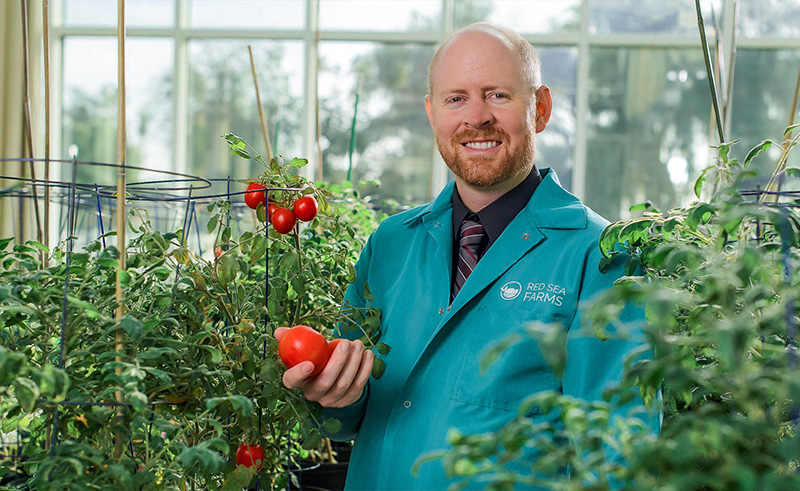 While the startup was successfully able to expand its technology adoption in hot places across the globe, including the Middle East, its biggest challenge was going from the lab to products.
While the startup was successfully able to expand its technology adoption in hot places across the globe, including the Middle East, its biggest challenge was going from the lab to products.
“What we did and what we're continuing to do is take technology from the lab into a product and then begin selling it in the market,” he says. “That historically hasn't been done, or it hasn't been done a lot.”
In its early years, Red Sea had to make product pivots to navigate the fallout from the pandemic, including supply chain disruptions and limited access to funding at the time. As a result, some products had to be shelved, while others were removed from the pipeline entirely.
Despite this setback, the startup was able to develop its current products and bring them to market. Benefitting from an international team, support from the university, and later access to funding from both inside and outside the region, has helped Red Sea in expanding its global footprint.
A testament to its success was raising a total $36.5 million in funding to date to support product development, and fuel its regional and global expansion plans.
“Farming is a tough occupation but it's one that we absolutely need for the human race to survive,” Lefers says. “If I can play some small part in making the lives of farmers better and the therefore the lives of their families better, because we're able to provide them with the technologies that enable them to produce more with less and get a better return, then at the end of the day that's a huge win for me.”
Trending This Month
-
Jan 19, 2026



